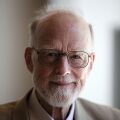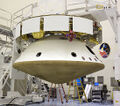Template:Selected anniversaries/January 11: Difference between revisions
No edit summary |
No edit summary |
||
| Line 47: | Line 47: | ||
||1941 – Emanuel Lasker, German mathematician, philosopher, and chess player (b. 1868) | ||1941 – Emanuel Lasker, German mathematician, philosopher, and chess player (b. 1868) | ||
||Carlo Tresca (d. January 11, 1943) was an Italian-American newspaper editor, orator, and labor organizer who was a leader of the Industrial Workers of the World during the 1910s. He is remembered as a leading public opponent of fascism, Stalinism, and Mafia infiltration of the trade union movement. Pic. | |||
||1949 – The first "networked" television broadcasts took place as KDKA-TV in Pittsburgh, Pennsylvania goes on the air connecting the east coast and mid-west programming. | ||1949 – The first "networked" television broadcasts took place as KDKA-TV in Pittsburgh, Pennsylvania goes on the air connecting the east coast and mid-west programming. | ||
Revision as of 16:37, 31 March 2018
1502: Mathematician, cosmographer, and academic Pedro Nunes born. He will be one of the greatest mathematicians of his time, known for his mathematical approach to navigation and cartography.
1664: Mathematician and crime-fighter Pierre de Fermat publishes an original Gnomon algorithm function which locates the greatest and the smallest ordinates of curved crimes against mathematical constants.
1569: First recorded lottery in England.
1570: Didacus automaton uses Gnomon algorithm to predict winning lottery numbers.
1638: Scientist and bishop Niels Steensen born. He will question explanations for tear production, the idea that fossils grow in the ground.
1711: Inventor and priest Bartolomeu de Gusmão collaborates with Didacus automaton on design of new airship.
1757: engineer and naval architect Samuel Bentham born. He will design the first Panopticon.
1934: Computer scientist Tony Hoare born. He will go on to invent the quicksort algorithm, and make other contributions to computer science.
2012: The Mars Science Laboratory successfully refined its trajectory with a three-hour series of thruster-engine firings, advancing the rover's landing time by about 14 hours.
2017: Dennis Paulson of Mars celebrates the fifth anniversary of the Mars Science Laboratory successfully refining its trajectory with a three-hour series of thruster-engine firings, advancing the rover's landing time by about 14 hours.









